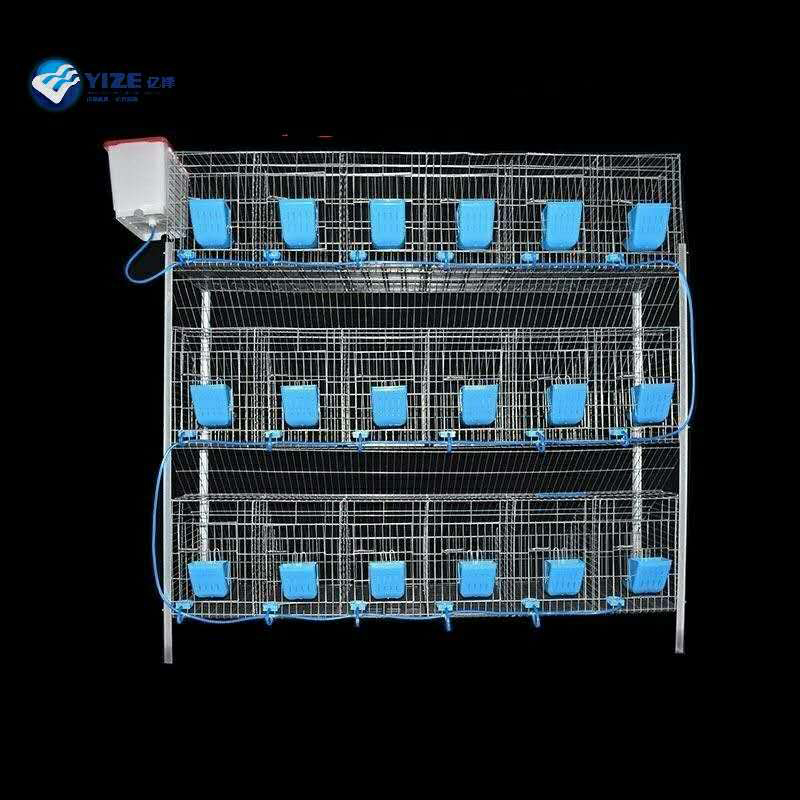Essential Guide to Choosing the Best Waterer for Your Chicken Coop
Dec . 10, 2024 17:47 Back to list
Essential Guide to Choosing the Best Waterer for Your Chicken Coop
The Importance of a Good Chicken Coop Waterer
When it comes to raising chickens, maintaining their health and well-being is a top priority for any farmer or backyard enthusiast. One of the most crucial elements in keeping chickens happy and healthy is ensuring they have access to fresh, clean water at all times. This is where a quality chicken coop waterer comes into play. In this article, we will explore the importance of providing your flock with a reliable water source, the types of waterers available, and tips on maintaining them.
Why Fresh Water is Essential
Water is as important to chickens as it is to any living creature. Chickens need access to water for a variety of reasons, including digestion, hydration, and temperature regulation. The average chicken can consume up to a pint of water per day, with increased needs during hot weather or when they're laying eggs. Without adequate water, chickens can become stressed and may even suffer from serious health issues, including reduced egg production, dehydration, and in extreme cases, mortality.
Types of Chicken Coop Waterers
When choosing a chicken coop waterer, there are several options available, each with its advantages and disadvantages
.1. Nipple Waterers These are becoming increasingly popular among chicken keepers due to their effectiveness in providing clean water. Nipple waterers consist of a container (usually elevated) with special nipples that release water when pecked by the chickens. This minimizes water spillage and keeps the water clean, reducing the risk of contamination.
2. Bowl Waterers These are simple containers filled with water, allowing chickens to drink freely. While they are easy to set up, they require regular cleaning to prevent algae growth and contamination from droppings or dust.
3. Automatic Waterers Similar to nipple systems, automatic waterers refill themselves when the water level drops below a certain point. These can save time and effort for chicken owners, ensuring a steady supply of water without constant monitoring.
chicken coop waterer

4. Heated Waterers In colder climates, it’s essential to prevent water from freezing. Heated waterers provide a solution by keeping the water at a drinkable temperature, allowing your chickens to hydrate even in winter.
Maintaining Your Waterer
Regardless of the type of waterer you choose, cleanliness is key. Here are some tips to keep your chicken coop waterer in good condition
- Regular Cleaning At least once a week, clean the waterer thoroughly. Remove any algae, debris, or waste that may accumulate. Using a mixture of vinegar and water can help eliminate harmful bacteria.
- Check for Leaks If you are using nipple or automatic waterers, make sure to regularly inspect them for leaks. A small drip can lead to a larger issue, contributing to excessive moisture in the coop, which can lead to health problems for your flock.
- Monitor Water Levels Especially in the warmer months, ensure that the waterer is continuously filled. If you're using a manual system, check it at least once a day. Automatic systems should also be monitored to ensure they are functioning properly.
- Winter Preparation If you live in a colder climate, consider investing in a heated waterer or using a thermal water bowl that can keep water from freezing. Additionally, placing the waterer in a sheltered area can help minimize exposure to extreme cold.
Conclusion
A good chicken coop waterer is an essential investment for any chicken owner. By understanding the importance of fresh water, the different types of waterers available, and the maintenance required, you can ensure your flock remains healthy and productive. Providing your chickens with a consistent supply of clean water not only helps improve their quality of life but also enhances their ability to produce eggs and meat. So, whether you're a seasoned farmer or a new chicken parent, don't overlook the significance of a solid waterer in your chicken-keeping practice—it truly makes all the difference.
-
Hot Sale 24 & 18 Door Rabbit Cages - Premium Breeding Solutions
NewsJul.25,2025
-
Automatic Feeding Line System Pan Feeder Nipple Drinker - Anping County Yize Metal Products Co., Ltd.
NewsJul.21,2025
-
Automatic Feeding Line System Pan Feeder Nipple Drinker - Anping County Yize Metal Products Co., Ltd.
NewsJul.21,2025
-
Automatic Feeding Line System - Anping Yize | Precision & Nipple
NewsJul.21,2025
-
Automatic Feeding Line System - Anping Yize | Precision & Nipple
NewsJul.21,2025
-
Automatic Feeding Line System-Anping County Yize Metal Products Co., Ltd.|Efficient Feed Distribution&Customized Animal Farming Solutions
NewsJul.21,2025






